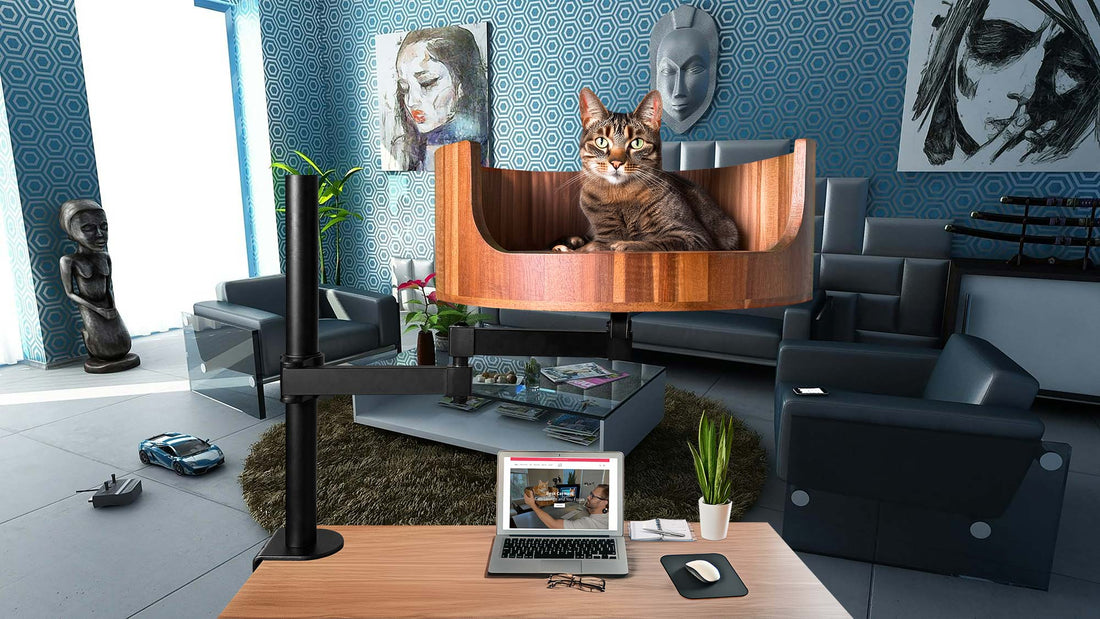
My Cat Throws Up a Lot: Understanding the Causes
Share
If your cat frequently vomits, you're not alone. Many cat owners find themselves dealing with the unpleasant task of cleaning up hairballs or regurgitated food on a regular basis. While the occasional bout of vomiting is normal for cats, excessive vomiting can be a cause for concern. In this article, we will discuss the common causes of frequent vomiting in cats and provide some tips for managing this issue.
One of the main reasons why cats vomit frequently is hairballs. Cats groom themselves by licking their fur, which can lead to the ingestion of hair. When this hair accumulates in their stomach, it can form a hairball that must be expelled through vomiting. Other causes of frequent vomiting in cats include eating too quickly, dietary indiscretions, food allergies, and underlying medical conditions such as pancreatitis or inflammatory bowel disease. By understanding the potential reasons behind your cat's vomiting, you can work with your veterinarian to develop a plan to address this issue and keep your feline friend healthy and happy.
1. Hairballs are a common cause of vomiting in cats and can be managed with grooming and specialized diets.
2. Cats may vomit due to food allergies or sensitivities, so it's important to monitor their diet and consult a veterinarian if needed.
3. Ingestion of foreign objects or toxic substances can also lead to vomiting in cats, requiring immediate medical attention.
4. Stress and anxiety can manifest in vomiting behaviors in cats, so creating a peaceful environment is essential for their well-being.
5. Regular veterinary check-ups and open communication with your veterinarian are crucial in managing and preventing frequent vomiting in cats.
Common Causes of Vomiting in Cats
Vomiting in cats can be caused by a variety of factors, including dietary issues, hairballs, gastrointestinal infections, and underlying medical conditions such as liver or kidney disease. It is important to monitor your cat's eating habits, litter box use, and overall behavior to determine the potential cause of their frequent vomiting episodes. In some cases, a visit to the veterinarian may be necessary to rule out any serious health concerns.
Dietary Considerations
The type of food your cat consumes can play a significant role in their digestive health. Cats may vomit if they eat something that their stomach cannot tolerate, such as spoiled food or foreign objects. It is important to provide your cat with a balanced diet that meets their nutritional needs and to avoid sudden changes in their food. Additionally, feeding your cat smaller, more frequent meals throughout the day may help prevent vomiting caused by overeating.
Hairballs
One common cause of vomiting in cats is the presence of hairballs in their digestive system. Cats groom themselves regularly, ingesting loose fur that can accumulate in their stomach and form hairballs. If your cat is vomiting up hairballs frequently, consider increasing their fiber intake or offering hairball control treats to help move the hair through their digestive system more efficiently.
Medical Conditions
Persistent vomiting in cats can also be a sign of underlying medical conditions such as pancreatitis, hyperthyroidism, or inflammatory bowel disease. If your cat is vomiting frequently and exhibiting other symptoms such as lethargy, weight loss, or changes in appetite, it is important to seek veterinary attention promptly. Your veterinarian may recommend diagnostic tests such as blood work, x-rays, or ultrasounds to determine the cause of your cat's vomiting episodes.
## FAQ
### Is the Desk Cat Nest suitable for cats who throw up frequently?
Yes, the Desk Cat Nest is designed to provide a comfortable and secure space for your cat to relax and rest. The elevated design helps to reduce the likelihood of your cat getting motion sickness and therefore throwing up.
### How does the Desk Cat Nest help with cats who throw up frequently?
The Desk Cat Nest provides a cozy and safe environment for your cat to rest, which can help reduce stress and anxiety that may be contributing to their frequent vomiting. The elevated perch also allows your cat to observe their surroundings without feeling vulnerable, which can help prevent motion sickness.
### Are there any specific features of the Desk Cat Nest that can aid in reducing vomiting?
The cozy and enclosed design of the Desk Cat Nest provides a sense of security for your cat, which can help reduce stress and promote relaxation. Additionally, the elevated perch allows your cat to survey their environment with ease, reducing the likelihood of motion sickness.
### How can I introduce my cat to the Desk Cat Nest to encourage them to use it?
It's recommended to place the Desk Cat Nest in a quiet and familiar area where your cat likes to hang out. You can encourage your cat to explore the nest by placing treats or toys inside, allowing them to become comfortable with the space at their own pace.
### Will the Desk Cat Nest completely eliminate my cat's vomiting issues?
While the Desk Cat Nest can help create a more comfortable and stress-free environment for your cat, it may not completely eliminate their vomiting issues. It's always best to consult with a veterinarian to address any underlying health concerns that may be contributing to your cat's vomiting.
In conclusion, investing in a Desk Cat Bed can greatly benefit your cat who throws up frequently. By providing a comfortable and elevated sleeping space, the Desk Cat Bed can help reduce the likelihood of indigestion and vomiting. This innovative product not only promotes better digestion and overall health for your feline friend, but also adds a stylish and functional piece of furniture to your workspace. Don't hesitate to make the valuable choice of a Desk Cat Bed to improve your cat's well-being and enhance your home decor simultaneously.



















































